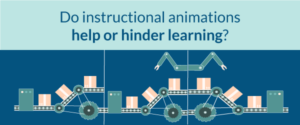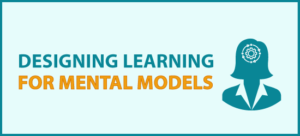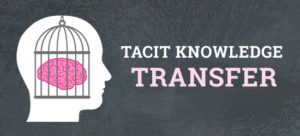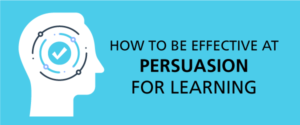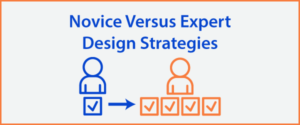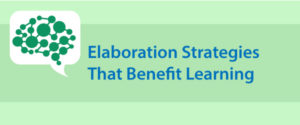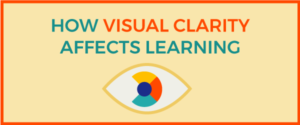It’s not easy to be creative on demand. If you have creative blocks, you can overcome them once you recognize them.
Do instructional animations help or hinder learning?
How can you make animations for learning that are effective? Why do so many animations fail to yield results? Find the answers here.
Why Less is More in Learning Design
When it comes to learning, less is more. Overloading learners with too much information interferes with the learning process.
Designing Learning for Mental Models
By understanding a learner’s mental models, we can improve our user interfaces, instructional interventions and overall learning experiences.
Design for Bottom-Up and Top-Down Processing
People use both top-down processing and bottom-up processing as they are learning. Here’s how to design for both.
20 Things To Remember About Forgetting
What Causes Us To Forget
Learning designers want to increase remembering and prevent forgetting. Here’s what you should know about what causes us to forget.
Strategies For Tacit Knowledge Transfer
If it is difficult to transfer tacit knowledge through language, then how can it be passed on? Here are six proven strategies for inferring and acquiring tacit knowledge.
What makes someone an expert?
The Cognitive Psychology of Expertise
Understanding expert thinking helps us design training for both experts and novices. Learn about the differences by understanding the cognitive psychology of expertise.
How To Be Effective At Persuasion For Learning
How to infuse persuasive messages into learning experiences when you need to convince the target audience to change behaviors or attitudes.
Novice Versus Expert Design Strategies
The Expertise Reversal Effect
When designing, consider the expertise reversal effect. Instructional techniques for novices may be detrimental for experienced learners
Elaboration Strategies That Benefit Learning
Making Connections to Prior Knowledge
These elaboration strategies provide ways to connect new learning to prior knowledge in order to make learning meaningful.
How Visual Clarity Affects Learning
Research on Processing Fluency
Processing fluency refers to the ease with which a person processes information. A high processing fluency benefits learning.


